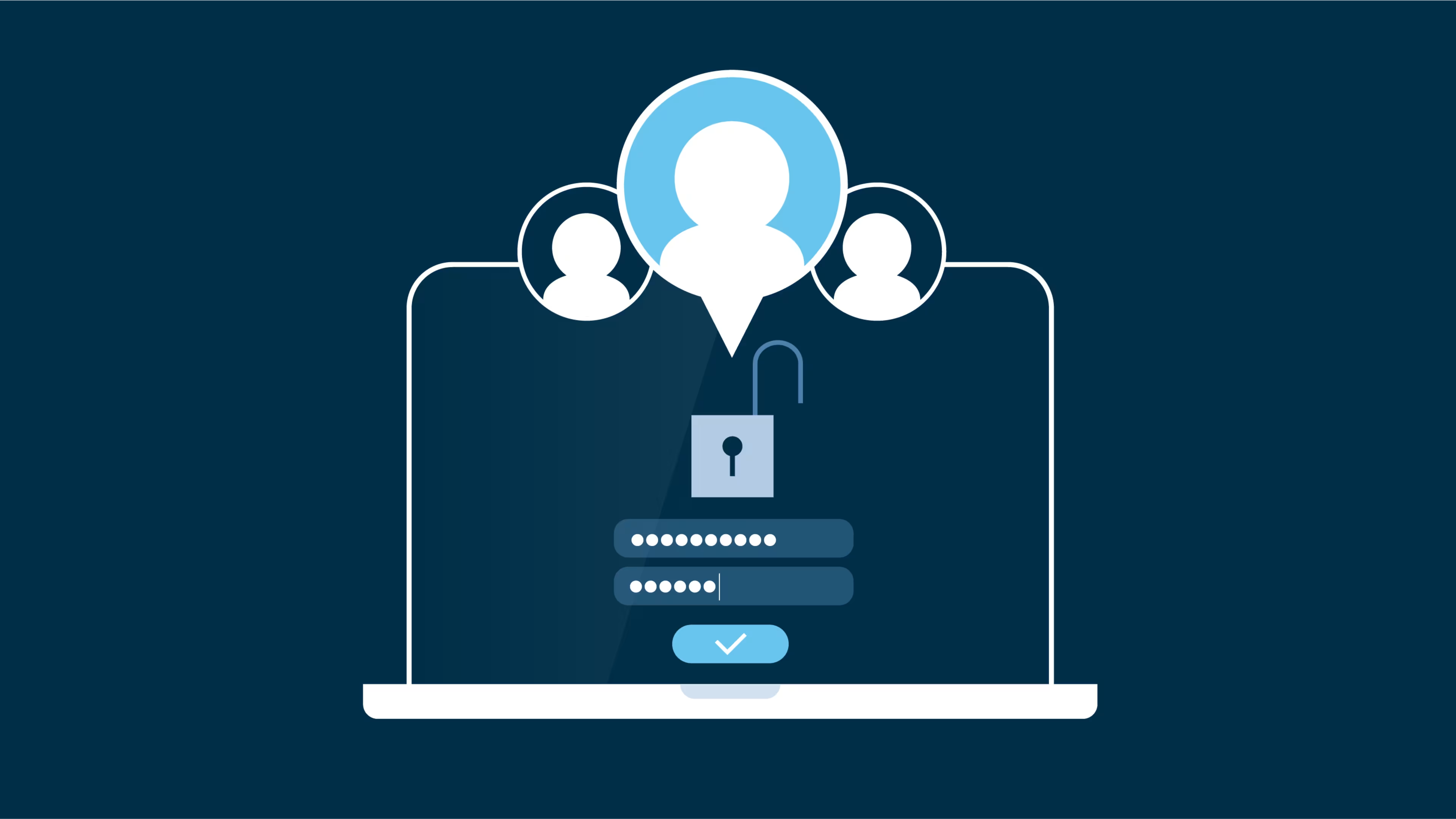If you’re not offering guest checkout and social login, you’re losing conversions to the competition.
Today’s online consumers are overloaded with usernames and passwords, and many are weary of handing over their personal information to create yet another online account. But it’s not only about keeping up with passwords or handing over their data—our research finds that online consumers are in a hurry and a full two out of three expect to finish checkout in four minutes or less.
In this report, we’ll explain how guest checkout and social login options solve all of these issues by reducing friction for consumers, which makes it more likely they’ll convert as customers. We’ll also run down the results of our 2022 Online Shopping Survey so you have more visibility into what today’s online shoppers are looking for.
Key survey findings:
The clock is ticking: Two in three consumers (66%) expect online checkout to take four minutes or less.
Consumers won’t hesitate to abandon their cart: A full 82% of consumers have decided against an online purchase because the account registration process was too complicated.
Today’s consumers avoid sharing their valuable email: Most consumers (75%) use a burner email account for online shopping.
Guest checkout can help close the deal: 43% of consumers prefer to use guest checkout when making an online purchase.
2 in 3 consumers expect to check out online in 4 minutes or less
Our research shows you have four minutes or less before most consumers (66%) start to get impatient with the online checkout process. Perhaps more startlingly, 28% expect checkout to happen in two minutes or less.
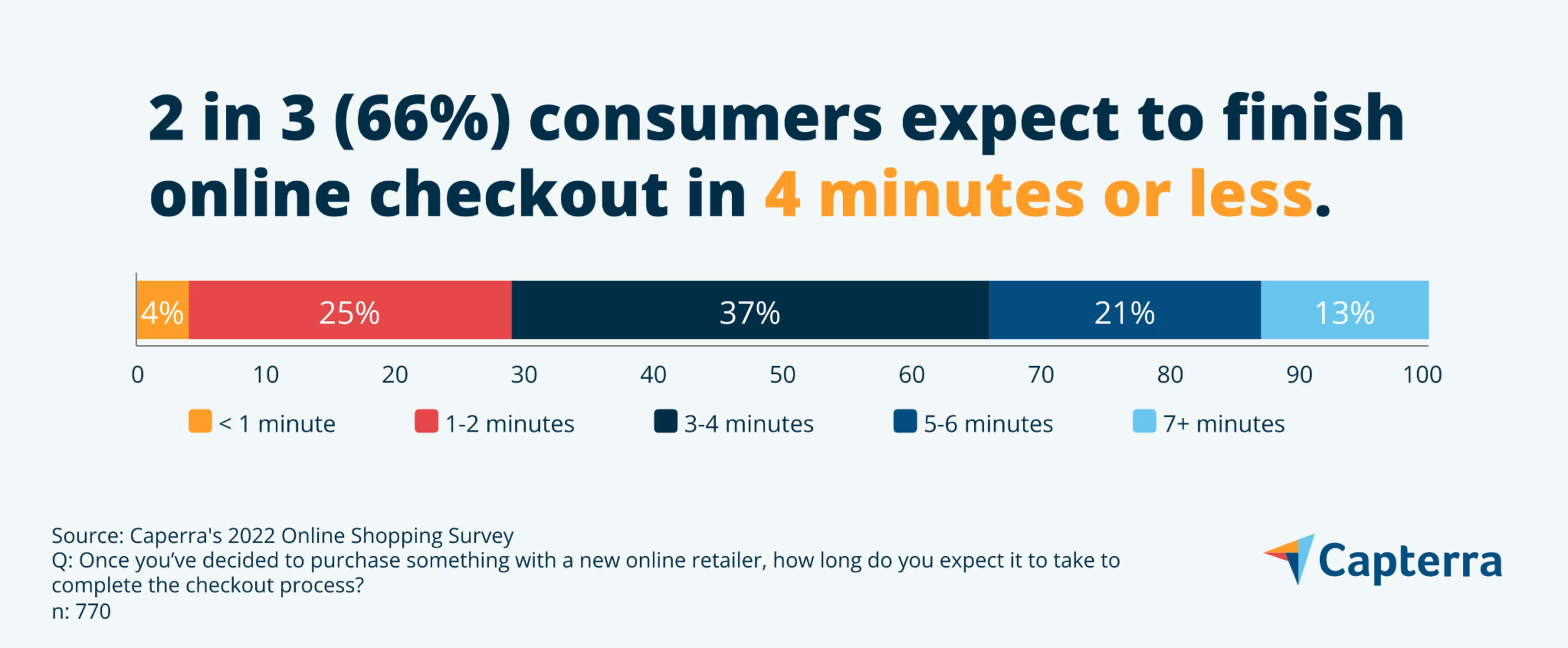
As an online retailer, these statistics mean it’s critical that you focus on making the purchase process as fast and friendly as possible. This can be accomplished by expanding your purchase process to include guest checkout and social login options. And if you’re worried about losing out on the data collection benefits of new customer account registrations, the next section explains why you shouldn’t be.
3 in 4 consumers use a burner email account for online shopping
If you’ve been limiting customers to creating a new account so you can collect email addresses and demographic information, it’s important to understand that the overwhelming majority of consumers use bogus email accounts that will be of little use to your email marketing strategy.
It’s never been easier for consumers to create throwaway email accounts with most major email providers offering disposable addresses and browser add-ons that automate the process. Our research finds that a full 3 in 4 consumers (75%) use a burner email account for online shopping.
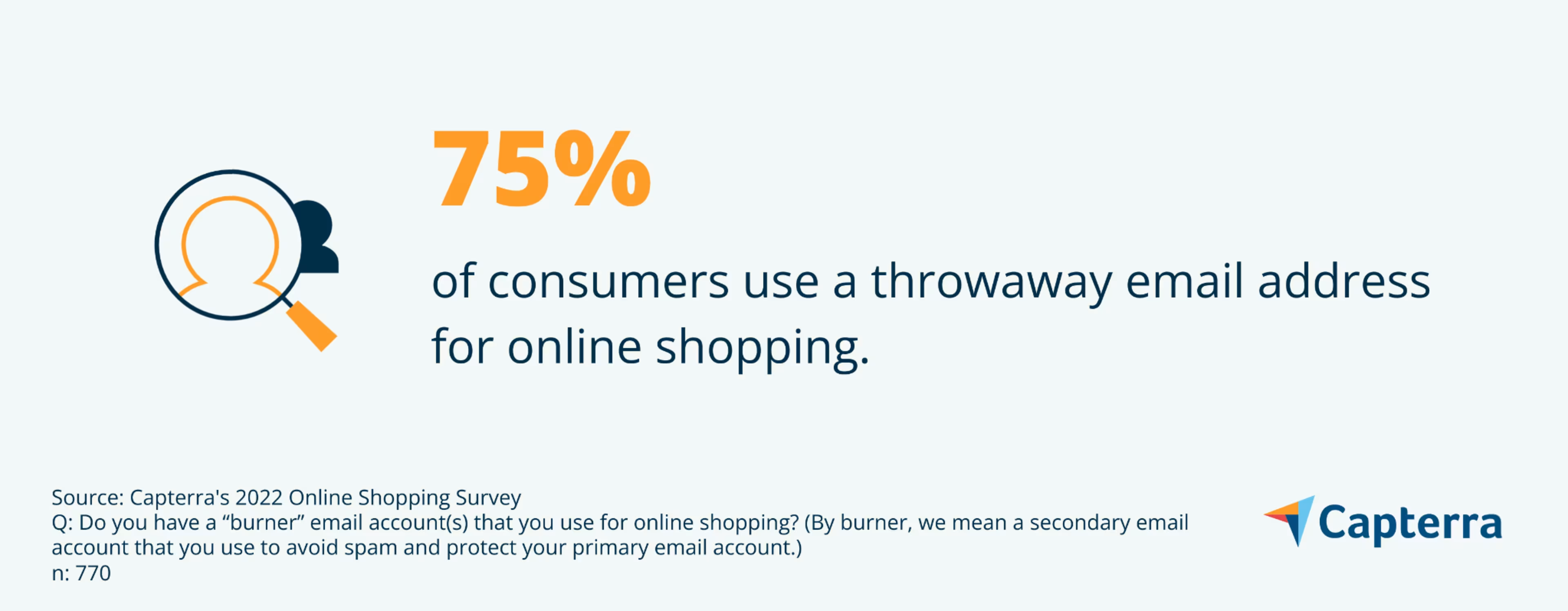
What’s more, when we break down our data by age group, a clear trend emerges that businesses must take into consideration: An overwhelming 84% of Gen Z consumers (age 18 to 25) say they use a burner email account compared to only 59% of those 46 years and older.
Sure, you could deploy email validation and require new customers to click a link confirming their email address—but that adds a time-consuming step, alienates privacy-focused consumers, and risks losing a sale.
Moreover, our first-party data report found that 86% of online consumers sometimes feel forced to provide personal information while 72% provide fake demographic information, at least some of the time. So not only are you getting a lot of dead-end email addresses, but by forcing data collection strategies on cautious consumers, you’re also gathering bogus demographic information that will confuse your marketing efforts.
Ultimately, what’s important is allowing customers to complete a purchase with your company on their terms, even if that means limiting the marketing data you’re able to collect.
Guest checkout is the most popular option among consumers when making a purchase online
When shopping online in 2022, there are three basic checkout options most consumers will encounter: create a new account, sign in with a social profile, or check out as a guest. Our research finds that the most popular option by far is guest checkout, which 43% of consumers prefer.
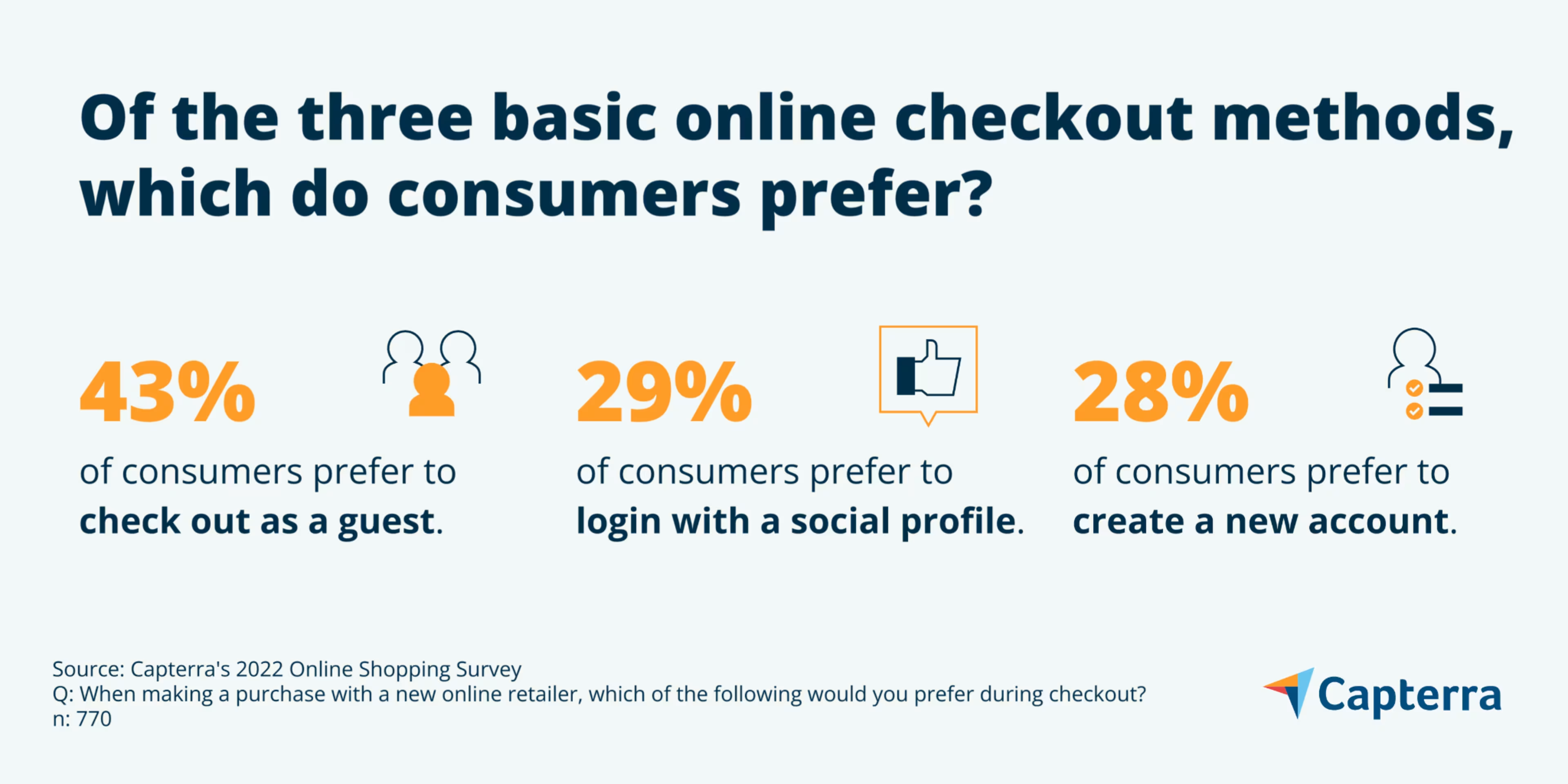
We asked those who prefer guest checkout why they favor it and found that:
Seventy-four percent think it’s faster than creating a new account.
Fifty-six percent don’t want to keep up with another online account.
Forty-seven percent like it because they don’t need to provide as much personal information.
In other words, customers use guest checkout because it’s faster, more convenient, and less invasive. Intriguingly, 72% of this segment would still use guest checkout even if they already have an account with an online company.
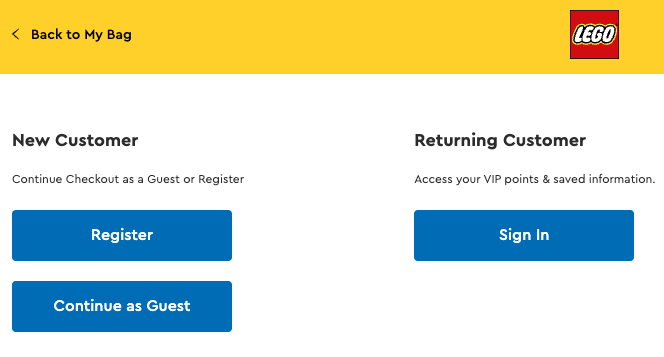
Checkout screen for Lego.com offering a guest checkout option
Moving on to the second most popular online checkout method, nearly a third (29%) of our respondents prefer using a social media profile. Social login is a form of bring your own identity (BYOI) and has gained steam over the last several years as a single sign-on method for consumers, many of whom prefer to use a familiar and trusted credential over creating one with a new company.
Of those who prefer social login, Facebook and Google are tied as most popular with 44% each followed at a distance by Twitter at 9% and everything else combining for a mere 4%.
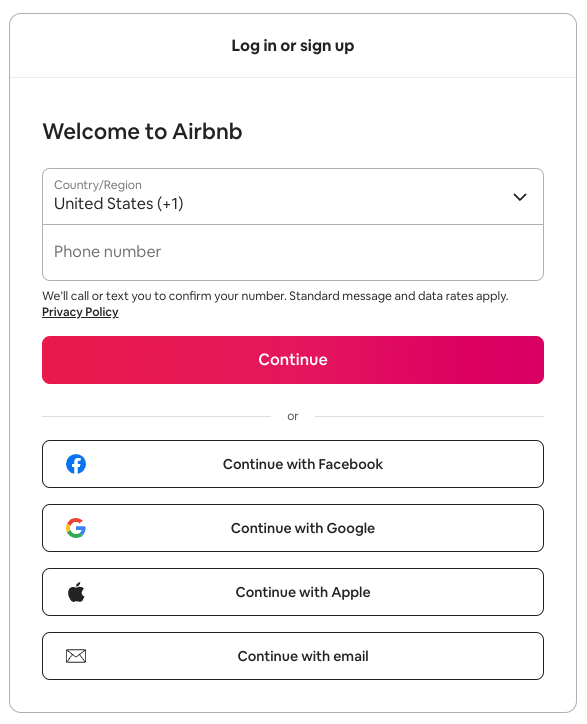
Airbnb’s account sign up page with three different social login options
A key benefit of social login is that you can still gain access to certain customer data while leaving the authentication process to a third party. Of course, you are limited to the type and accuracy of information that the customer provides on their social profile. If your company is interested in implementing social login, consider using customer identity and access management (CIAM) software that streamlines the process and helps to organize and filter identity attributes associated with social profiles.
Finally, 28% of consumers still prefer to create a new customer account. These customers might be looking for a more interactive experience with your company, more personalization, or just to keep track of orders. In addition, many consumers view social login as a privacy issue while others simply prefer to keep business and social profiles separate and don’t consider the account registration process to be a pain point.
With that said, a full 82% of consumers in our survey have decided against an online purchase because the account registration process was too complicated—nearly half (49%) of these consumers say it happens often. More alarming: 36% of consumers say they would abandon an online purchase if forced to create a new account.
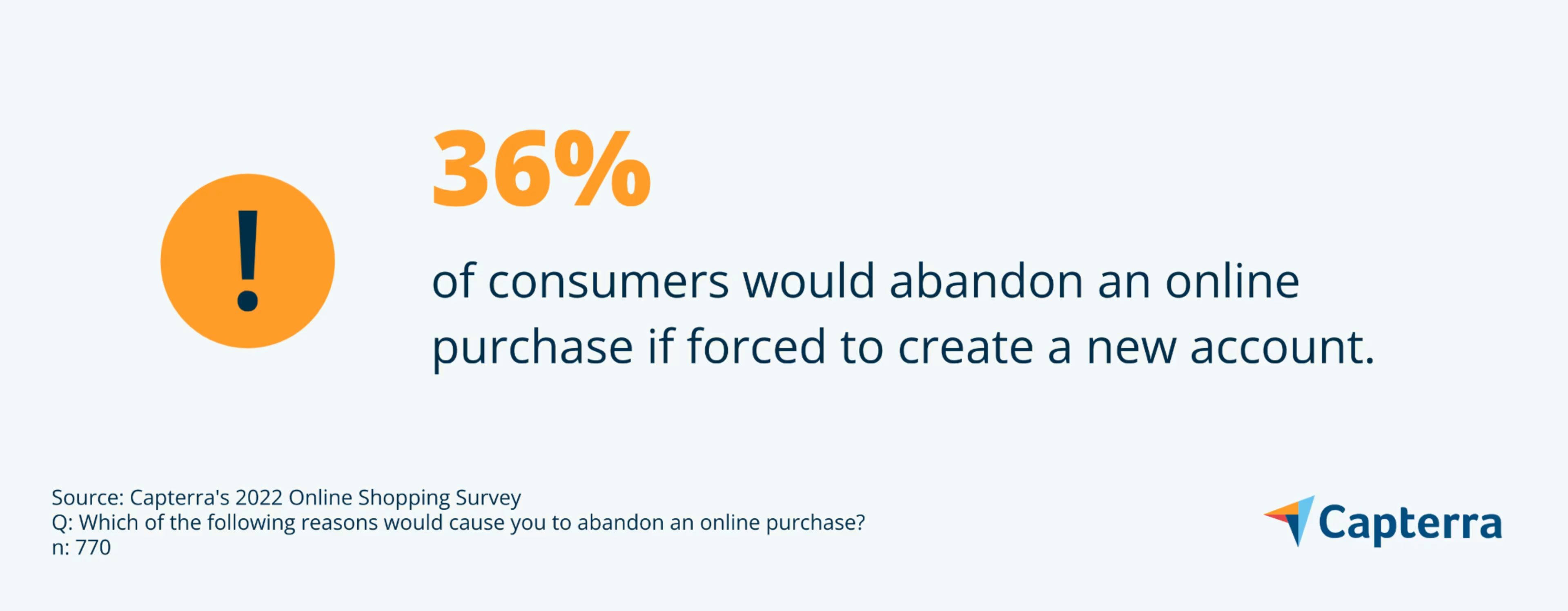
Make it easy for consumers to convert into customers
Most consumers simply want to make a purchase quickly, conveniently, and without handing over information to a website they don’t yet trust. Accordingly, the ritual of registering for a new account with each and every online retailer is gradually becoming a thing of the past. The trend toward social login and guest checkout options make it faster and easier to do business with your company.
Want to learn more about consumer preferences and online marketing strategies? Read our recent report: Improve Your First-Party Data Strategy—Our Research Shows You How
